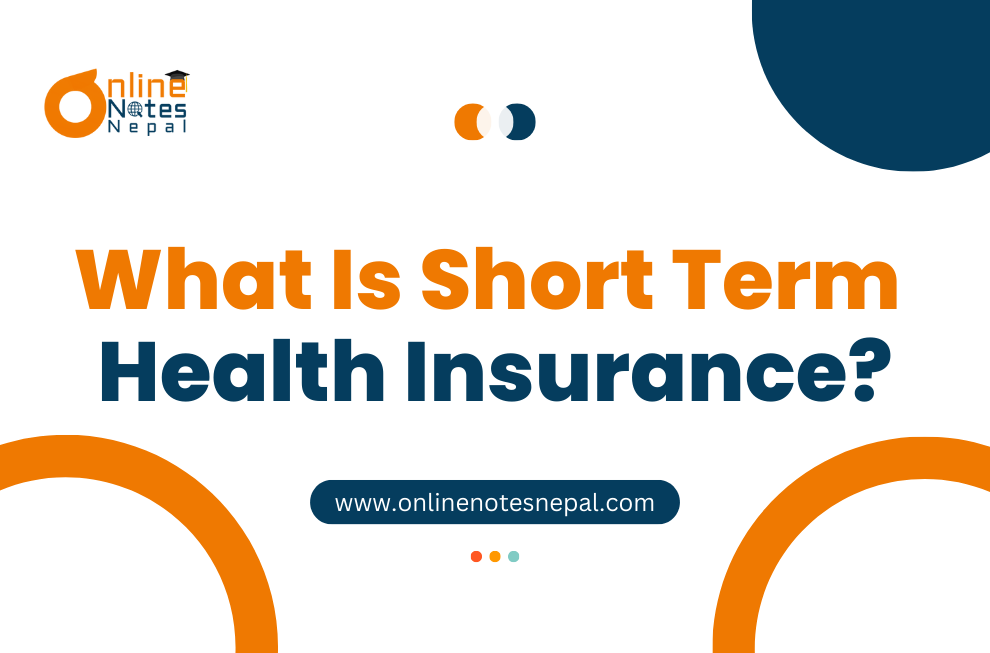Blogs



What Is Short Term Health Insurance?
Life InsuranceWhat Is Short Term Health Insurance?
Navigating the world of health insurance can be difficult, especially if you're in a transition time and require temporary coverage. Here's where short-term health insurance comes in. Short-term health insurance policies are intended to provide temporary health care during gaps in regular insurance. Here's an in-depth look at short-term health insurance, its benefits, restrictions, and when it might be the best option for you.
Understanding Short Term Health Insurance
Short-term health insurance policies, also known as temporary health insurance, are intended to fill the gap when you are without health coverage. These policies are often less extensive than normal health insurance plans, but they provide coverage for unforeseen medical bills.
Short-term health insurance provides temporary coverage.
Short-term plans can range from a few months to a year, depending on state rules and the insurer. Some states permit the renewal or extension of these plans, whilst others do not.
- Flexibility: These plans are extremely flexible, making them ideal for people in a variety of situations, including recent graduates, those between employment, and those waiting for other coverage to begin.
- Lower premiums: Short-term health insurance premiums are often lower than standard health insurance plans. This makes them an appealing choice for people who require immediate coverage without paying a large price.
Advantages of Short-Term Health Insurance:
- Quick Enrollment: One of the primary advantages of short-term health insurance is the quick and simple enrolling process. You can typically acquire coverage within a few days of applying.
- Access to Healthcare: While short-term plans may not cover all of the same services as standard plans, they do give you access to a network of doctors and hospitals, allowing you to get the treatment you need.
- Financial Protection: These plans provide financial protection against high medical expenditures caused by unforeseen illnesses or accidents, covering a percentage of hospital stays, emergency room visits, operations, and other medical services.
Short-term health insurance has limited coverage.
Short-term plans usually do not cover pre-existing diseases, maternity care, mental health services, or prescription medicines. They are not required to provide the basic health coverage specified by the Affordable Care Act (ACA).
- Out-of-pocket costs: While premiums are lower, out-of-pocket expenses like deductibles, copayments, and coinsurance may be greater than in typical health insurance plans.
- Non-Renewable Policies: In many circumstances, short-term health insurance plans do not renew. When the term expires, you may need to reapply for a new plan, which could result in a coverage gap.
When Should You Consider Short-Term Health Insurance?
Short-term health insurance is a potential alternative in numerous instances, including:
- Between jobs: Short-term insurance can fill the gap if you've left a job and are waiting for new employer-sponsored health care to start.
- Waiting for open enrollment: If you missed the ACA's open enrollment period, a short-term plan can cover you until the next enrollment period.
- Recent Graduates: Graduates who are no longer covered by their parents' plans or who are awaiting new job-based insurance can benefit from short-term coverage.
- Early retirees: Individuals who retire before becoming eligible for Medicare can utilize short-term insurance to cover healthcare expenses in the meantime.
Conclusion
Short-term health insurance can be a useful answer for people who require temporary coverage. It serves as a bridge during periods of change and provides critical financial protection against unforeseen medical bills. However, it is critical to recognize the restrictions and determine whether it suits your healthcare requirements. Always evaluate several plans and study the fine print to verify that you're making the best decision for your individual needs.

